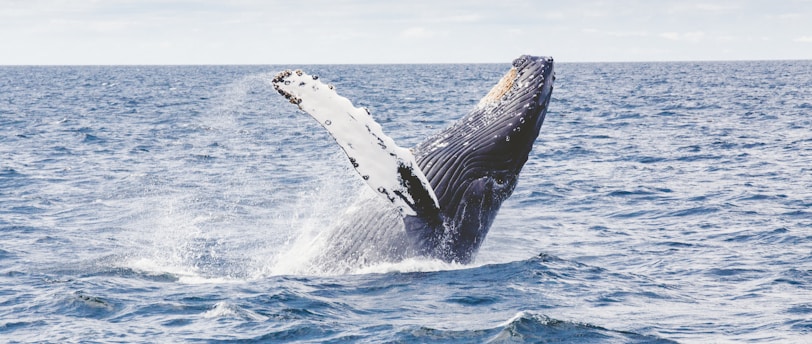Whispers in the Deep: The Imperiled Existence of Blue Whales
In the vast expanse of our oceans, where the sun's rays barely pierce the surface, exists a creature of unparalleled magnificence—the blue whale. As the largest animal on Earth, the blue whale is not only a testament to the wonders of the natural world but also a symbol of the profound challenges facing marine life. In this blog post, we explore the plight of the endangered blue whales and the urgent need for conservation efforts to ensure the survival of these gentle giants.
11/23/20232 min read


The Giants of the Ocean:
Blue whales, scientifically known as Balaenoptera musculus, are awe-inspiring beings that traverse the open seas, their haunting calls resonating through the deep waters. With lengths reaching up to 100 feet and weighing as much as 200 tons, these marine leviathans are a living testament to the incredible diversity of life beneath the waves.
Threats to Blue Whales:
Despite their colossal size, blue whales are not immune to the perils of the modern world. The primary threats they face are man-made and include:
Ship Strikes: The increase in maritime traffic poses a significant risk to blue whales. Collisions with large vessels can result in fatal injuries, impacting their already dwindling population.
Entanglement in Fishing Gear: As industrial fishing expands, so does the risk of blue whales becoming entangled in nets and lines. This not only leads to injury and death but also hampers their ability to feed and migrate.
Ocean Noise Pollution: The underwater symphony of the ocean is crucial for blue whales, who rely on vocalizations for communication and navigation. Human-generated noise from shipping, sonar, and oil exploration disrupts this communication, affecting their behavior and reproductive success.
Climate Change: Alterations in ocean temperatures and disruptions in prey distribution due to climate change directly impact the availability of krill, the primary food source for blue whales.
Conservation Efforts:
Several international organizations and governments are actively working to address the challenges faced by blue whales. Conservation initiatives include:
Marine Protected Areas: Establishing protected areas in key whale habitats helps mitigate the impact of human activities, providing safe spaces for feeding, breeding, and migration.
Shipping Regulations: Implementing and enforcing speed limits in areas known for high whale traffic reduces the risk of ship strikes.
Technological Innovations: Developing and promoting whale-friendly fishing gear and technology minimizes the risk of entanglements.
Public Awareness: Raising awareness about the importance of blue whales in maintaining marine ecosystems fosters a sense of responsibility and encourages sustainable practices.
Conclusion:
The haunting melodies of blue whales echo a plea for understanding and action. As stewards of the planet, it is our collective responsibility to safeguard these majestic creatures and the delicate balance of the oceans they inhabit. Through concerted conservation efforts and a commitment to sustainable practices, we can ensure that the whispers of the blue whales continue to resonate in the deep for generations to come.
Contacts
contact@terra-rising.com
